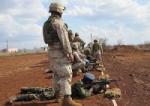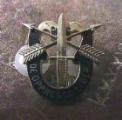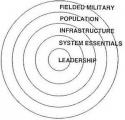Summary
The ongoing uprising in Libya against the government of Muammar al Qadhafi has been the subject of ongoing domestic and international debate about potential international military intervention, including the proposed establishment of a no-fly zone over Libya. Congress may wish to consider issues surrounding the strategy, international authorization, congressional authorization, operations, and costs of establishing and maintaining no-fly zones.
The military strategy designed to support the grand strategy, it has been suggested, might be based on these considerations: the operational-level military objectives that need to be achieved, to support the overall grand strategy; and the extent to which a no-fly zone — as one set of ways and means — helps achieve those objectives.
Practitioners and observers have debated what constitutes international “authorization” for the establishment of a no-fly zone. Given the paucity of relevant precedents, and the dissimilarities among them, there may not exist a single, clear, agreed model. The concept of authorization is typically considered to be linked to the ideas of both “legality” and “legitimacy” — the three concepts overlap but are all distinct. The precise meaning of each of the terms is still debated. Express authorization from the U.N. Security Council provides the clearest legal basis for imposing a no-fly zone.
In addition to international authorization, debates have addressed the question of congressional authorization—whether and when there is a need for congressional approval based on the War Powers Resolution for a proposed no-fly zone. The question of whether and how congressional authorization is sought for a proposed operation could have an impact on congressional support — including policy, funding, and outreach to the American people — for the operation. Since the War Powers Resolution gives the President the authority to launch U.S. military actions prior to receiving an authorization from Congress for 60-90 days, it is possible that the President could direct U.S. Armed Forces to take or support military actions in accordance with U.N. Security Council resolutions, or in support of NATO operations, and then seek statutory authority for such actions from Congress.
No-fly zone operations can conceivably take a number of different forms, and can themselves vary a great deal over time. Key considerations include, but are not limited to, the following factors: the nature, density, quantity, and quality of adversary air assets; geography; the availability of “friendly” assets; the adversary’s military capabilities and responses; the U.S. military’s concept of operations, and the rules of engagement.
The costs of establishing and maintaining a no-fly zone are likely to vary widely based on several key parameters. They could be the specific military tasks that a given no-fly zone operation calls for, the geography of the adversary’s country, the duration of the no-fly zone, the extent to which the U.S. is joined by international partners in the effort, and the extent of “mission creep” — how, if at all, the operation expands to include a broader array of activities designed to achieve the same military and strategic objectives.










 I got the context but the broader problem is as you say...
I got the context but the broader problem is as you say... 










Bookmarks